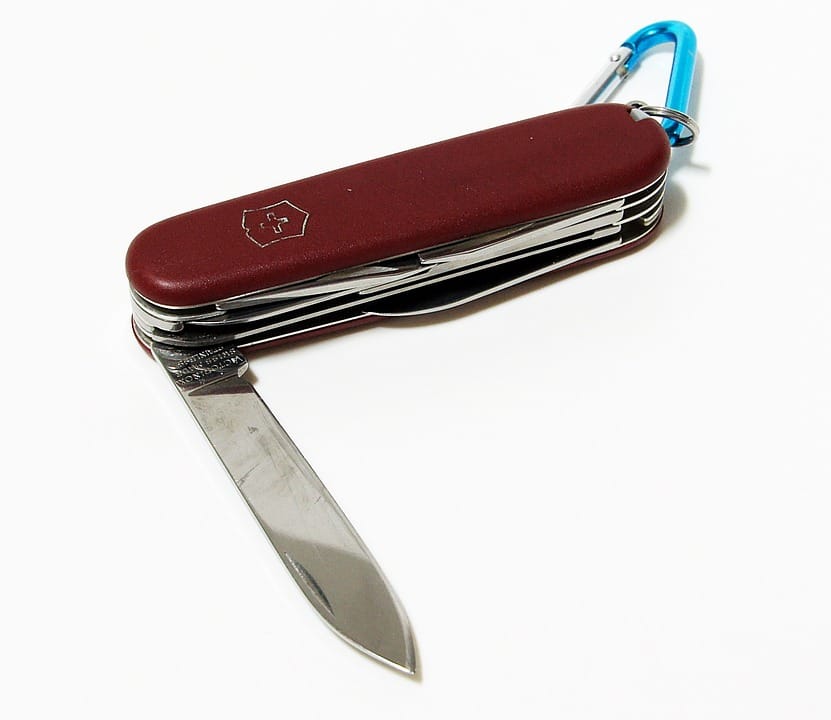Is it Legal to Carry a Pocket Knife? The Answer Might Surprise You
Understanding the Basics of Pocket Knife Laws
Carrying a pocket knife can be a useful and convenient tool, but it’s essential to understand the laws surrounding it. In this article, we’ll delve into the world of pocket knife laws, exploring the complexities and nuances of what is and isn’t allowed. From state to state, country to country, the regulations surrounding pocket knives can vary significantly. Let’s start by examining the fundamental principles that govern the carrying of pocket knives.
What is a Pocket Knife?
Before we dive into the legal aspects, it’s crucial to define what a pocket knife is. A pocket knife is a small, handheld knife designed for everyday use. Typically, it has a blade length of less than 2.5 inches (6.35 cm), making it easy to carry in a pocket, purse, or backpack. Pocket knives can have various features, such as a folding or fixed blade, multiple tools, and ergonomic handles.
Federal Laws and Pocket Knives
The federal government has established guidelines for pocket knives, but these laws are relatively relaxed. The primary concern is the length of the blade, which must be less than 2.5 inches (6.35 cm) to be considered a pocket knife. The federal government does not prohibit the carrying of pocket knives, as long as they meet this blade length requirement.
State-by-State Regulations
While federal laws provide a general framework, state laws can be more restrictive. Some states have specific regulations regarding pocket knives, while others may not have any laws at all. Here’s a breakdown of some states’ regulations:
| State | Blade Length Limit | Carry Restrictions |
|---|---|---|
| California | 2 inches (5.08 cm) | No open carry, concealed carry allowed with permit |
| Florida | No limit | No permit required for concealed carry |
| New York | 4 inches (10.16 cm) | No open carry, concealed carry allowed with permit |
| Texas | No limit | No permit required for open or concealed carry |
Local Ordinances and Municipal Laws
In addition to state laws, local ordinances and municipal laws can also impact pocket knife carrying. Some cities or towns may have specific regulations or restrictions on pocket knives, which can be more stringent than state laws. For example, some cities may prohibit the carrying of pocket knives in public places or parks.
Carrying a Pocket Knife: Dos and Don’ts
When carrying a pocket knife, it’s essential to be aware of the laws and regulations in your area. Here are some general dos and don’ts to keep in mind:
DO:
- Check local and state laws before carrying a pocket knife
- Carry a pocket knife in a secure and accessible location, such as a pocket or purse
- Use your pocket knife responsibly and only for its intended purpose
DON’T:
- Carry a pocket knife with a blade length exceeding the legal limit
- Carry a pocket knife in a school, government building, or other restricted area
- Use your pocket knife for illegal or harmful activities
Frequently Asked Questions
Q: Can I carry a pocket knife in my state?
A: Check your state’s laws and regulations to determine if pocket knives are allowed.
Q: What is the maximum blade length allowed for a pocket knife?
A: Typically, 2.5 inches (6.35 cm) or less, but this can vary by state or locality.
Q: Can I carry a pocket knife in a public place?
A: Check local ordinances and laws to determine if pocket knives are allowed in public places.
Q: Do I need a permit to carry a pocket knife?
A: Check your state’s laws and regulations to determine if a permit is required.
Q: Can I use my pocket knife for self-defense?
A: While pocket knives can be useful for self-defense, it’s essential to check local laws and regulations regarding the use of knives for self-defense.
Q: Are there any specific rules for carrying a pocket knife in a school or government building?
A: Yes, these areas often have strict regulations or prohibitions on carrying pocket knives.
Conclusion
Carrying a pocket knife can be a useful and convenient tool, but it’s essential to understand the laws and regulations surrounding it. By familiarizing yourself with federal, state, and local laws, you can ensure that you’re carrying your pocket knife responsibly and legally. Remember to always check local ordinances and laws before carrying a pocket knife, and use your tool responsibly and only for its intended purpose.
